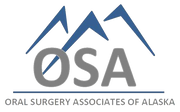3 Preventable Risk Factors for Oral Cancer

While you brush and floss your teeth regularly to prevent cavities and gum disease, you might not be doing everything possible to prevent oral cancer. Some of the most common risk factors are general lifestyle habits that, if changed, could lower your risk of developing the disease. Here are three preventable factors that oral surgeons advise everyone to consider.
How to Minimize Your Risk of Mouth Cancer
1. Discontinue Tobacco Use
Tobacco usage is among the most prevalent risk factors for oral cancer. This includes using products like cigarettes, chewing tobacco, and cigars. All contain carcinogens, toxins, and nicotine, which may increase your risk.
Smokers are 10 times more at risk of developing oral cancer than non-smokers, and 85% of all cancers of the head and neck are associated with tobacco. Snuff and chewing tobacco, typically placed in the mouth between the cheeks and the gums, can lead to cancer of the gums, lips, and cheeks.
2. Reduce Alcohol Consumption
 Abusing alcohol, or consuming 21 or more drinks every week, is the second greatest risk factor for oral cancer. Using both tobacco and alcohol may increase your risk, as the liquid dehydrates the walls of your cells. That makes it easier for tobacco carcinogens to affect the tissues in your mouth. Heavy drinking also reduces your body’s ability to properly use antioxidants that may prevent cancer.
Abusing alcohol, or consuming 21 or more drinks every week, is the second greatest risk factor for oral cancer. Using both tobacco and alcohol may increase your risk, as the liquid dehydrates the walls of your cells. That makes it easier for tobacco carcinogens to affect the tissues in your mouth. Heavy drinking also reduces your body’s ability to properly use antioxidants that may prevent cancer.
3. Avoid Excessive Sunlight
Just as you safeguard the rest of your body from the sun, oral surgeons recommend that you take the same precautions for your lips. Use a lip balm enriched with sun protection whenever you go outside or visit a tanning salon. Limiting your time in the sun can also make an enormous difference.
If you’re concerned about your oral cancer risk, consult the professionals at Oral Surgery Associates of Alaska. Serving patients throughout Anchorage, the board-certified oral surgeons perform comprehensive oral pathology exams using state-of-the-art technology to arrive at accurate diagnoses. Visit their website to find out how they can help you, or call (907) 561-1430 to schedule an appointment.
About the Business
Have a question? Ask the experts!
Send your question

